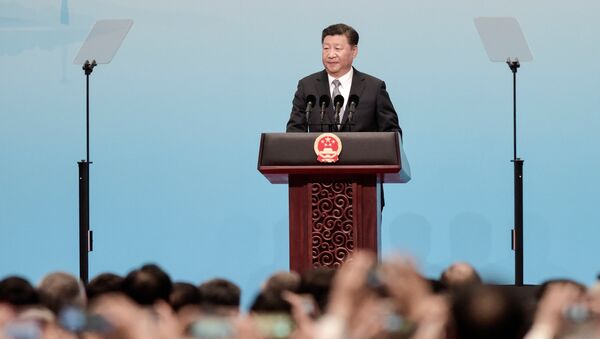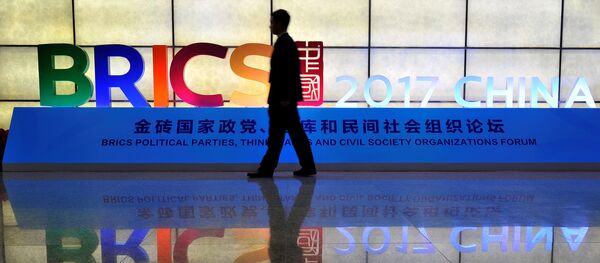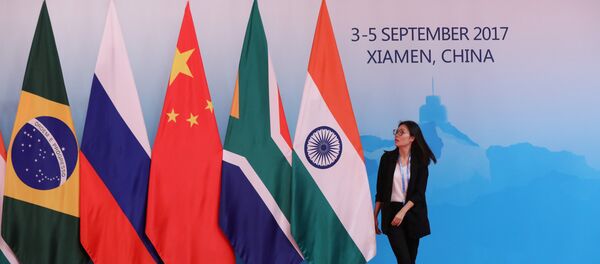While some speculators may be hoping to take advantage of the situation, BRICS countries' primary concern is that the Sino-US trade friction will continue and have a negative impact on the world economy.
Russia views the trade friction as one of the steps taken by the US to contain China's rise and avoid a challenge to its hegemony. At the same time, Russia also believes that the trade friction will draw China closer to Russia and provide more support for Russia in dealing with Western pressure.
In 2017, the BRICS accounted for 23 percent of the world economy and 16 percent of world trade, as well as contributing more than 50 percent of global economic growth. The BRICS countries have not only been an important international multilateral economic and trade cooperation mechanism, but also have become close trading partners with each other. Therefore, the worries among the BRICS countries cannot be ignored.
The US' trade protectionism has caused worry throughout international society. But together, the BRICS countries can cope with the pressure from the US and make efforts to maintain the international trade order.
First, China has demonstrated its determination to open up to the world. China will strive for support from the other BRICS countries through bodies such as the World Trade Organization and the G20 to protect multilateralism and the global trading system, which is built on international rules. The BRICS can establish an open world economy together, fighting against the anti-globalization and protectionist tendencies that have emerged in the US and some other developed countries.
Second, China can keep other members of the BRICS well informed about the progress of Sino-US trade negotiations. This way, the consensus can be enhanced, which can help in countering unilateralism. And it can stop member countries from being tempted to take advantage of the China-US trade tension.
Third, China will need to expand imports and continue its opening-up. The domestic market will not be opened solely to US products and services; it will be opened to other countries equally.
The priority is to implement the strategy for the BRICS economic partnership. The strategy sets out economic and trade cooperation for the BRICS countries over the next 10 years and highlights cooperation in fields such as finance, mining, agriculture, manufacturing, transportation, science and technology, as well as infrastructure and global economic governance. It is very important for BRICS countries to enhance their economic and trade cooperation, promote free trade and build an integrated market in BRICS countries.
China, the largest economic entity in the BRICS countries, is actively carrying out this strategy, while winning support from other members amid the Sino-US trade friction.
This article was originally published in Global Times.





